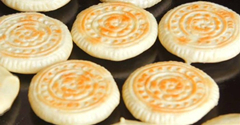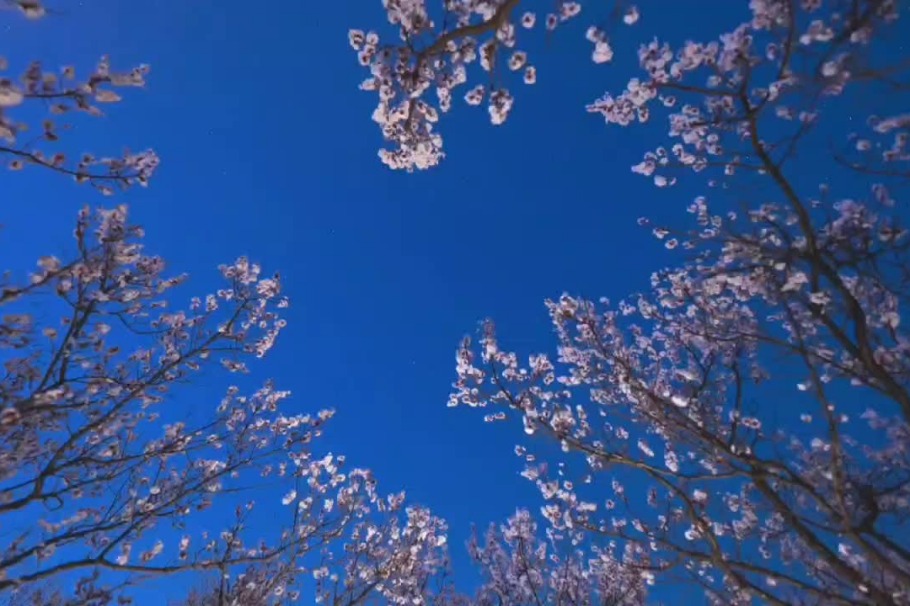News
A play without a stage
Updated:2014-07-03 10:48By Sylvia Fang ( chinadaily.com.cn)
Ancient Pingyao Once More, an experiential play that takes place in an artificially constructed town, is a creative staging of late-Qing-era Pingyao. Audiences call it a "living drama" without a stage.
There is no typical stage or auditorium. Instead, the audience interacts with the actors while moving alongside them through the artificial town. This is the drama's draw: a diversified sensory experience. Some participants feel like they're watching a show, others visiting a museum and others still traveling through time.
Critics have applauded the play as China's most creative tourism show in the past decade. Since its debut in February of last year, it has been performed more than 600 times and attracted over 260,000 visitors.
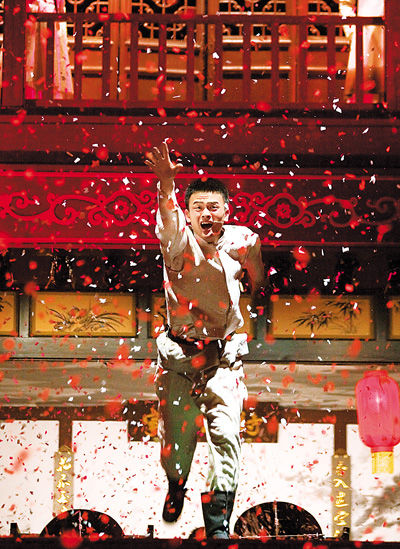 |
|
Leading actor Cheng Fei onstage during a dramatic moment of Ancient Pingyao Once More. |
A new performing style: touring while watching
"I never thought I'd see a play like this," said Mr. Zhang, a visitor from Beijing. "It's like wandering through the ancient city a hundred years ago!"
Another visitor, Mrs. Hu from Shanghai, said that the drama inspired her to see Pingyao from a new perspective, "The show made me realize that I missed a lot of cultural nuance during my last visit, and I am going to tour the city again," she said.
Walking out of the relics by the ancient city gate, you'll recognize the "theatre" by its grey tiles just a hundred meters away. It has no entrance or traditional stage hall—just miniatures of antique buildings that act as the backdrop for its plays.
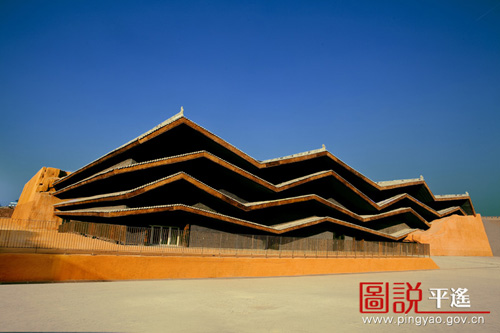 |
| The exterior of Ancient Pingyao Once More theatre |
Audience members then enter the theatre from all directions, like people pouring into an open city. There are streets, courtyards, city walls, squares and also a handful of notable establishments: Biao Ju (an old institution providing escorts), Piao Hao (an ancient currency-exchange shop) and Pai Lou (a decorated archway). There are stalls selling silk and pawns. When all of this comes together, it feels like a giant museum of old-time Shanxi merchants.
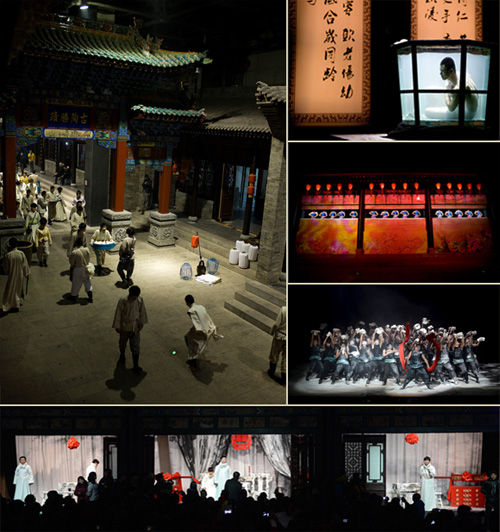 |
| A collection of scene shots of the play |
Streams of people come and go. Peddlers hawk their goods along the streets. The sound of children reading wafts out of the Si Shu, an ancient private school. Hundreds of actors play a variety of roles, passing through the "city" alongside the audience. You could hardly tell the visitors from the actors if it weren't for their difference in clothing.
Visitors piece together the story line by moving from scene to scene. The drama centers on the members of the Wang family, who had a great reputation for martial arts and ran the prestigious Tong Xinggong Biao Ju during Qing-Dynasty Pingyao. Wang Zhengqing established the Biao Ju in 1855, but when his offspring were arrested by Tsarist Russia, the play's protagonist, Zhao Yishuo, starts a seven-year rescue mission to save the Wang family's bloodline.
The charm of Pingyao lies not only in its ancient architecture, but also in its culture and traditions. Accordingly, director Wang Chaoge said that she and her team have integrated drama, dancing, photography and music in both traditional and modern ways. This required a hefty amount of historical research, which the team was happy to do.
Apart from enjoying the story, visitors experience 28 major aspects of Shanxi features—such as merchants' bodyguards, clan culture and local wheaten food to name a few.
Judging from its box office success, the play has become a major part of Pingyao's identity. The Pingyao Impression Cultural Tourism Co. sees it as not only a tourist attraction, but also a spirited tribute to the city's heritage. If the city's architecture shows history, then the drama displays its citizens' everyday habits.
From sightseeing tour to in-depth exploration
The drama perfectly melds culture and tourism, promoting a more in-depth exploration of Pingyao. Already, visitors tend to spend more days there. Feng Jianping, director of Shanxi's tourism bureau, said that the play's success proves that culture is the soul of tourism development. Pursuing beauty as well as knowledge is his ultimate goal.

